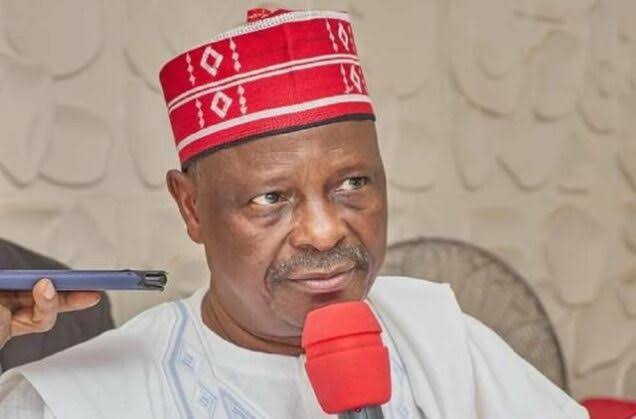National News
Governor Sule: Transforming Nigeria’s political culture from rivalry to partnership, by Ali Abare
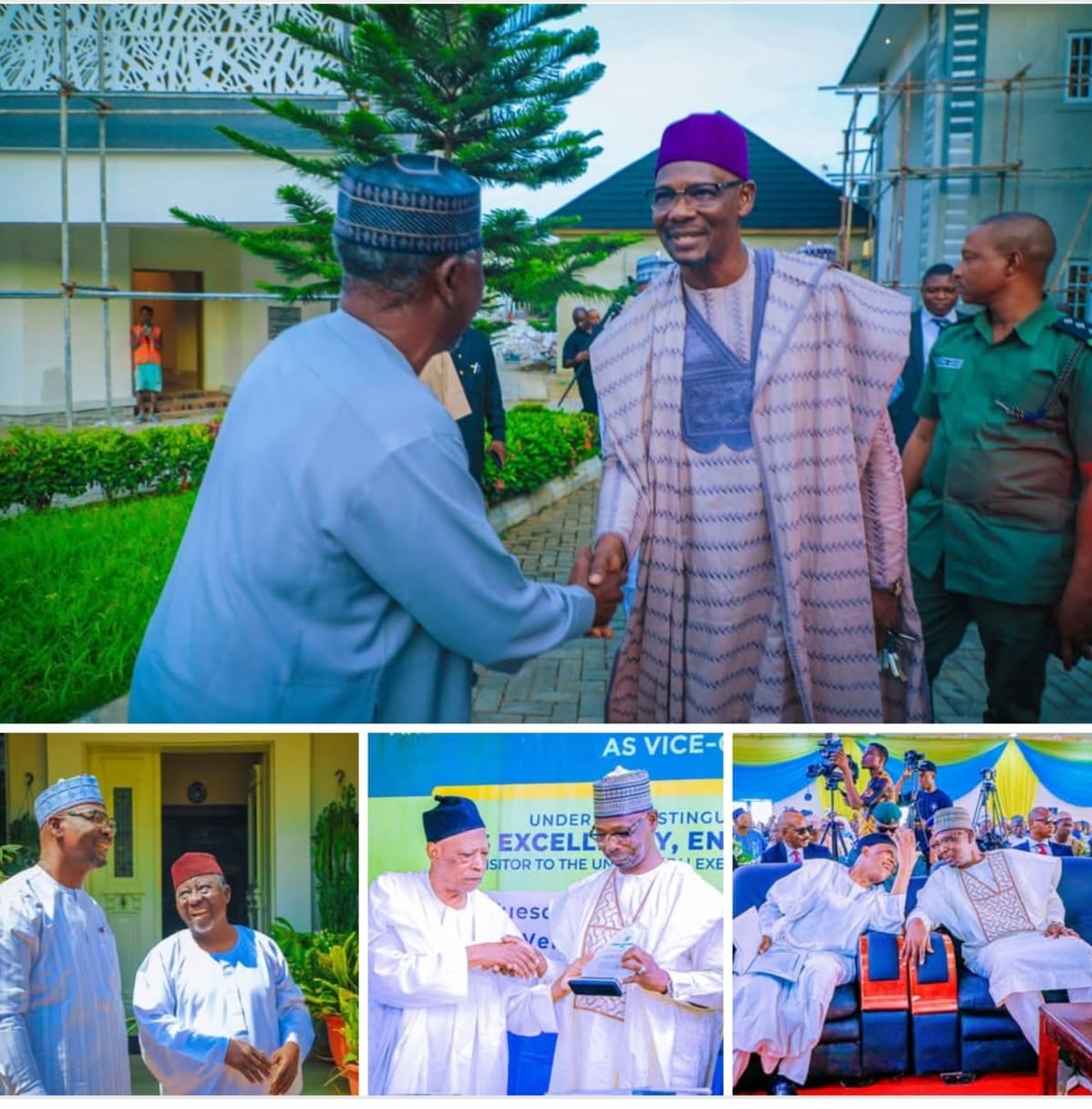
Governor Abdullahi Sule of Nasarawa State is a renowned technocrat who ventured into politics and whose efforts were rewarded when he was elected as Governor in 2019 and was subsequently reelected in 2023.
Since his assumption of office in 2019, Governor Sule has successfully brought his vast private sector experience to bear significantly in his handling of the affairs of Nasarawa State, with the state now being reckoned with nationally as far as dividends of democracy and sustainable development are concerned.
Governor Sule is repositioning Nasarawa State as a major player in the areas of agriculture, mining and solid minerals, industrialisation, health, education and most importantly security.
Drawing from his background in oil and gas, the Governor lobbied and worked hard to ensure that the first oil well, the Ebenyi-A oil well, in Obil Local Government Area, was drilled by the Nigerian National Petroleum Company Limited (NNPCL). Even though there are delays and challenges ahead, it is expected that at the end of the day, Nasarawa State will be able to exploit its abundant oil and gas resources to the benefit of the people.
Before 2019, Nasarawa State known as the Home of Solid Minerals, has never benefited financially from mining activities taking place across the state. However, with the passage of the Executive Order No.2 by the Governor Sule administration, the history of mining and solid minerals development changed for the better, not only within the state but nationally.
Then followed the ‘Lithium Rush’ with Chinese companies making inroads and investing heavily in the mining and processing of lithium, the new oil, which has the potentials to revolutionize the economy of the state and Nigeria as a whole. Lithium is a source of new energy and it is the major energy source in the production of electrical cars, cell phone batteries, amongst others.
As a mark of recognition for leading the revolution in mining and solid minerals development, the Federal Ministry of Solid Minerals Development, honoured Governor Sule by selecting Nasarawa State to host the combined 5th and 6th National Council on Mining and Mineral Resources Development, billed to hold in Lafia in August. Indeed, with his magic wand, Governor Sule has redefined governance by merging corporate efficiency with public service ethos, driving unprecedented progress across critical sectors.
However, Governor Sule’s most revolutionary achievement transcends infrastructure or economic policy. He has fundamentally rewritten Nigeria’s script on political succession. In a system notorious for “tug-of-war” transitions marked by institutional amnesia and personal vendettas, the Governor has nurtured and sustained genuinely cordial relationships with his predecessors, Senators Abdullahi Adamu (1999-2007) and Umaru Tanko Al-makura (2011-2019).
In Nigeria’s turbulent political landscape, where transitions often trigger abandoned projects and bitter rivalries, Nasarawa State stands apart. Under Governor Sule, the state has become a compelling model of continuity, collaboration, and transformative leadership. This seamless partnership between the incumbent Governor and former governors has transformed political transition into a developmental asset.
Of course, there is no gainsaying the fact that this rare alignment of vision across administrations, is accelerating progress in a state once hampered by fragmented governance. Recall that Senator Al-makura’s tenure was bedevilled by political rivalry and machinations, with the Peoples Democratic Party (PDP) dominated state house of assembly attempting to impeach him.
In spite of the challenges and Nigeria’s tendency for successors to repudiate predecessors, the relationship between Governor Sule and his predecessors has been exceptional and forward-looking.
Pundits posit that the Nasarawa’s experience offers a replicable template. That leadership transitions become progress accelerators when grounded in institutionalized collaboration rather than personal loyalty. Indeed, the Governor Sule-Adamu-Al-makura nexus proves that development thrives when administrations build bridges rather than burn them.
Also, considering the country’s transition conumdrum, it takes an uncommon bridge builder like Governor Sule to evolve a new model of continuity in governance, collaboration and partnership that is bringing development and progress to Nasarawa State.
Defying the corrosive norms of political succession, he has forged cordial alliances with his predecessors while systematically completing inherited projects. This seamless continuity, epitomized by the Farin Ruwa Dam and urban renewal initiatives, positions Nasarawa as a guiding light for subnational governance in Africa.
Certainly, Governor Sule’s six-year tenure offers more than physical infrastructure; it provides a governance blueprint for Nigeria. By honoring predecessors’ visions while enhancing them with transparency and private-sector efficiency, he proves that developmental continuity is possible in Africa’s fractious democracies. The Farin Ruwa Dam’s rising walls and Lafia’s transformed skyline stand as monuments to a radical idea: that leaders can build bridges, not bonfires, between eras.
As Nasarawa emerges as a hub for lithium processing and agribusiness, attracting $950m in investments under his cross-partisan stability, Governor Sule’s greatest legacy may be inspiring a nation to replace transition “tug-of-war” with the unifying purpose of progress.
In a region where political change often ignites regression, Nasarawa shines as a guiding light, proving that the most revolutionary act in Nigerian governance today is not defiance, but durable, purposeful collaboration.
There is no time this collaboration and partnership between these key leaders is paramount than in the coming months leading to the 2027 general election. As challenging as the moment could be, it provides the golden opportunity for Governor Sule and his predecessors to demonstrate selfless leadership as they nurture yet another transion in governance.
-

 National News1 day ago
National News1 day agoBreaking: FG declares June 6, 9 public holidays to mark Eid-ul-Adha celebration
-

 Metro News2 days ago
Metro News2 days agoTension as popular Ibadan restaurant building collapses
-

 Politics2 days ago
Politics2 days ago2 years not enough to access Tinubu’s achievements – Onanuga
-

 Crime and Law2 days ago
Crime and Law2 days ago“I didn’t tell my children”—79-year-old Nigerian breaks silence after U.S. exploitation
-
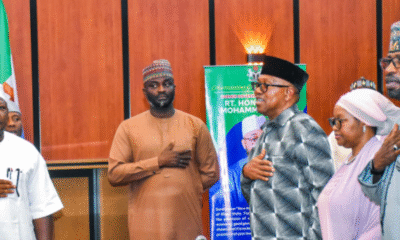
 Politics15 hours ago
Politics15 hours agoPeter Obi visits Niger, donates ₦20m to flood victims
-
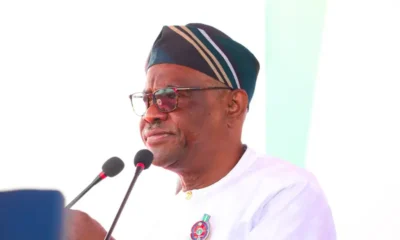
 Politics1 day ago
Politics1 day agoGround rent: I will not stop stepping on big toes – Wike
-

 Sports2 days ago
Sports2 days agoMbappe congratulates PSG on winning first-ever Champions League
-
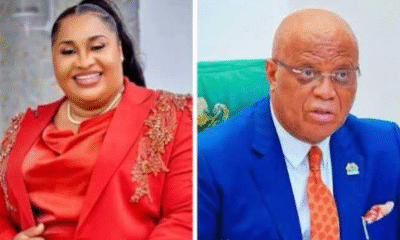
 Metro News1 day ago
Metro News1 day agoEno’s daughter manipulated by false prophets – AKSG












